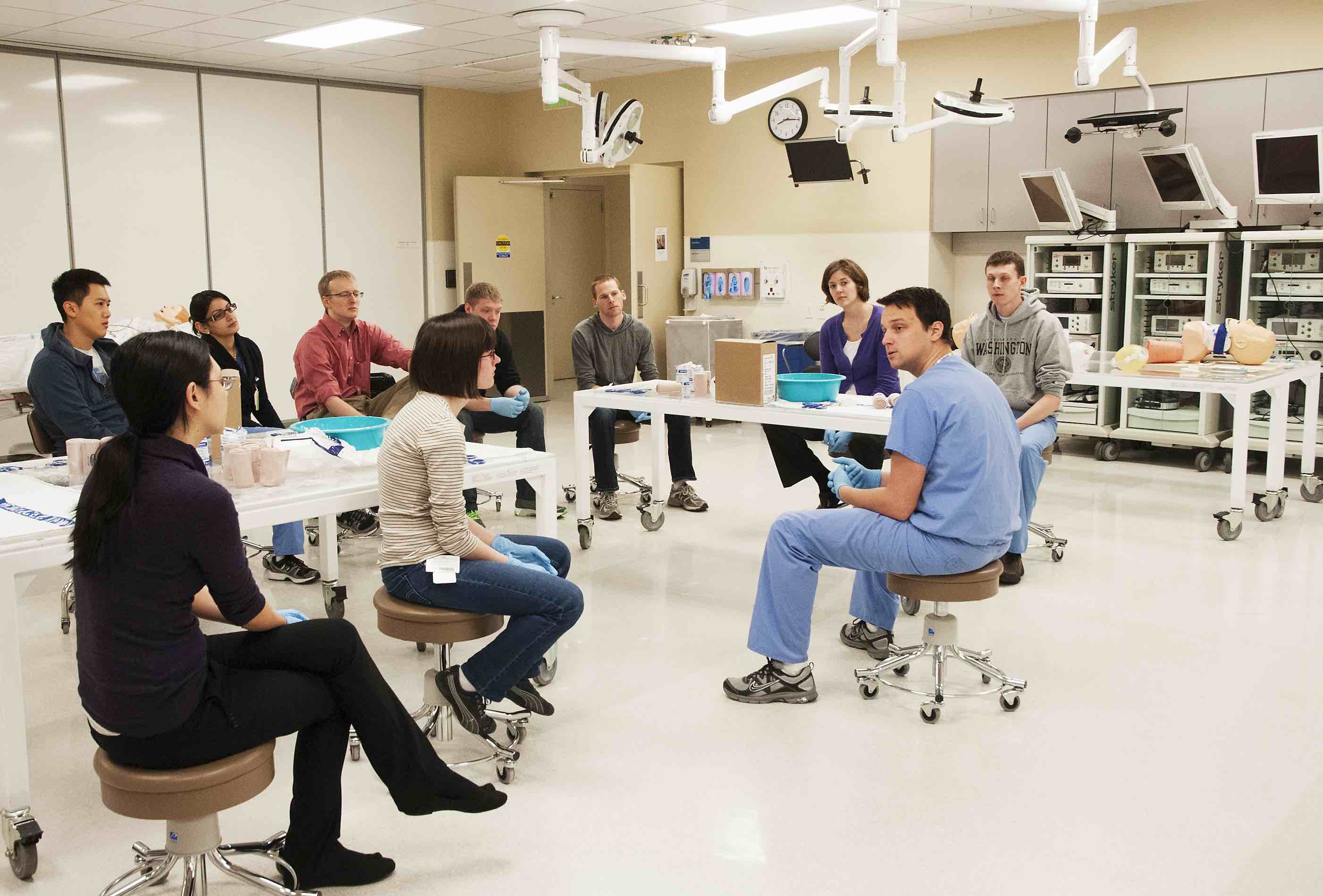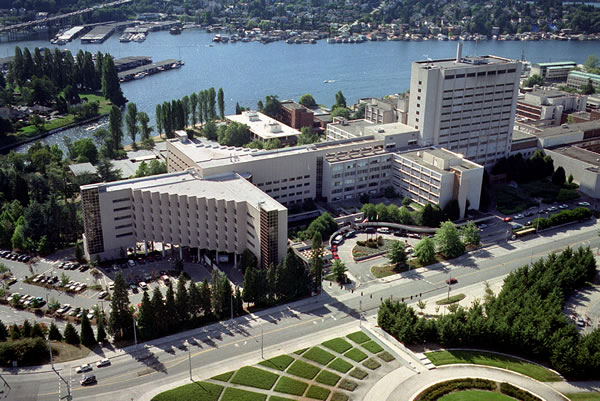Distinguished teachers and mentors

Honors & Awards
Learn more about our faculty teaching awards, and award recipients
Our School of Medicine is renowned for many strengths, and Department of Medicine faculty members are central to that success, particularly in the area of primary care.
Department faculty are active as teachers and mentors in all educational settings: residencies, fellowship training, and continuing medical education, as well as the medical school.
Teachers Superior in Perpetuity
The following Department of Medicine faculty members have won the Distinguished Teacher Award four times, designating them Teachers Superior in Perpetuity:
- Robert Conn
- Michael Copass
- Erika Goldstein
- Andrew Luks
- Steven McGee
- Terry Mengert
- Douglas Paauw
- Thomas Preston
- Michael Ryan
- David Saunders
- John Sheffield
- Fred Silverstein
Sharing expertise
The Internal Medicine Residency Program, with four different tracks, is one of the most sought after in the nation, as are the many subspecialty fellowships in our divisions.
Our faculty regularly share their expertise with the general public as well, in television programs, local clinics, and other community settings.
WWAMI
WWAMI is the regional medical education network of the University of Washington School of Medicine. The states involved in the program are Washington, Wyoming, Alaska, Montana, and Idaho. WWAMI aims to meet the health care needs of the region, make public medical education accessible to residents of these five states, and encourage graduates to choose careers in primary care medicine and locate their practices in non-metropolitan areas of the Northwest.
95% of students accepted to the UW School of Medicine come from the WWAMI region.
Highly rated opportunities in rural areas
Internists have an important role to play in the delivery of health care in rural areas. They provide a combination of general adult care, consultation, and subspecialty expertise. The Department of Medicine is proud to participate in the WWAMI program and through this participation to encourage more internists to choose to practice in rural communities.
Many third-year medical students choose WWAMI sites for a portion or all of their basic medicine clerkship. In addition, fourth-year students travel each year to WWAMI sites for advanced primary care clerkships.
Medical residents also participate in the WWAMI program. Residents work in a number of settings in these communities, from solo practitioner offices to large clinics and hospitals. The rural rotations are highly rated and always in demand.






